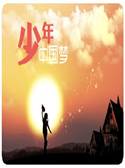题目内容
I work for a major airline. One afternoon while running through LAX to my plane, I tore (撕破) one of my nylon socks. , there was a convenience store close to my gate. I knew I could buy a new pair. However, as I waited in line, I that I had no money in my purse. I thought to myself that maybe the store manager would sell me a pair and let me pay her back the next time. I have been inside her store a lot, even though we have never been . When it was my to pay, I showed her my socks and explained that I had no money on me. She laughed and said, “Take them.”
Well, for whatever reason, two months passed, and I had not paid the money back.
Then one day while I was busy doing my usual preflight preparations, a passenger asked me if I would him a newspaper.
I went off the airplane and walked to the same convenience store. I was too embarrassed (尴尬的) to go inside because I had never paid the money back, and I wasn’t carrying my . Then a man with a friendly face came near. he could walk past me, I stopped him and asked him for help. He smiled and said that he would do so gladly but wanted to know why I couldn’t do it . He was rather outgoing and kept saying, “Come on, and tell me.” I needed a newspaper, so I and told him.
Suddenly he said, “Hold on.” and then took me into his arms quickly and carried me into the store. With his free hand he reached into his pocket and out a five-dollar bill and said to the manager, “I’d like to pay for the socks this person owes you for and for a newspaper.”
I later learned that this big, gentle man was Rosie Grier, the former L.A. Rams and Hall of Fame football player.
Well, for whatever reason, two months passed, and I had not paid the money back.
Then one day while I was busy doing my usual preflight preparations, a passenger asked me if I would him a newspaper.
I went off the airplane and walked to the same convenience store. I was too embarrassed (尴尬的) to go inside because I had never paid the money back, and I wasn’t carrying my . Then a man with a friendly face came near. he could walk past me, I stopped him and asked him for help. He smiled and said that he would do so gladly but wanted to know why I couldn’t do it . He was rather outgoing and kept saying, “Come on, and tell me.” I needed a newspaper, so I and told him.
Suddenly he said, “Hold on.” and then took me into his arms quickly and carried me into the store. With his free hand he reached into his pocket and out a five-dollar bill and said to the manager, “I’d like to pay for the socks this person owes you for and for a newspaper.”
I later learned that this big, gentle man was Rosie Grier, the former L.A. Rams and Hall of Fame football player.
| 小题1: |
|
| 小题2: |
|
| 小题3: |
|
| 小题4: |
|
| 小题5: |
|
| 小题6: |
|
| 小题7: |
|
| 小题8: |
|
| 小题9: |
|
| 小题10: |
|
| 小题11: |
|
| 小题12: |
|
小题1:B
小题2:D
小题3:C
小题4:A
小题5:A
小题6:B
小题7:D
小题8:C
小题9:C
小题10:A
小题11:B
小题12:D
试题分析:这篇短文主要介绍了我在一家大型航空公司工作时,划破了袜子当时没有钱在身上就请求店主下次偿还。可是两个月过去了由于各种原因还是没有偿还。一个乘客请我去买一份报纸,我尴尬极了。所以我就拦下一个人帮我买。而这个人是罗西格里尔,前洛杉矶公羊和名人堂的足球运动员。
小题1:考查动词及语境的理解。根据第一段there was a convenience store close to my gate. I knew I could buy a new pair.得知作者的袜子破了,可以在附近的便利店买一双新的,故选 B,幸运地
小题2:考查形容词及语境的理解。作者在排队的时候发现自己口袋里没有钱,故选 D。发现。
小题3:考查形容词及语境的理解。作者经常关顾这家便利店,所以认为即使和店主不认识,也可以赊一回账,故选 C
小题4:考查副词及语境的理解。it‘s time 指按时做某事;it‘s chance 指是 个机会;it‘s duty 指是某人的责任,均不符合句意。it‘s one‘s turn 指轮到某人,符合原意,故选 A。
小题5:考查动词及语境的理解。作者给店主看了一下脚上的破袜子,店主笑了笑,只是说了一句, “拿去吧。 ” seriously 指严肃地;actively 指活跃地;hurriedly 指匆忙地,均不符合句意,故选 A。
小题6:考查连词及语境的理解。两个月过去了,作者仍旧没有还店主的钱,故选 B。
小题7:考查动词词组及语境的理解。根据下文中作者去便利店买报纸得知一个乘客想要作者给他买一份报纸,故选 D。
小题8:考查名词及语境的理解。根据下文 I stopped him and asked him for help. 这句话得知作者没有带钱包,故选 C
小题9:考查动词及语境的理解。在他没有经过我身边前,我叫住他,希望他能帮个忙,故选 C。
小题10:考查名词及语境的理解。这个友好的人想知道为什么作者不能自己去做这件事儿,故选 A。
小题11:考查名词及语境的理解。give in 指供认不讳,符合句意,故选 B。check in 指办理入住宾馆的手续;break in 指打 断某人的谈话;get in 指进入,均不符合句意。
小题12:考查名词及语境的理解。这个友好的人掏出一张五美元的钞票。 pull out 指掏出来, carry out 指开展; hand out 指分发;send out 指发送。只有C符合句意,故选D。

练习册系列答案
相关题目
